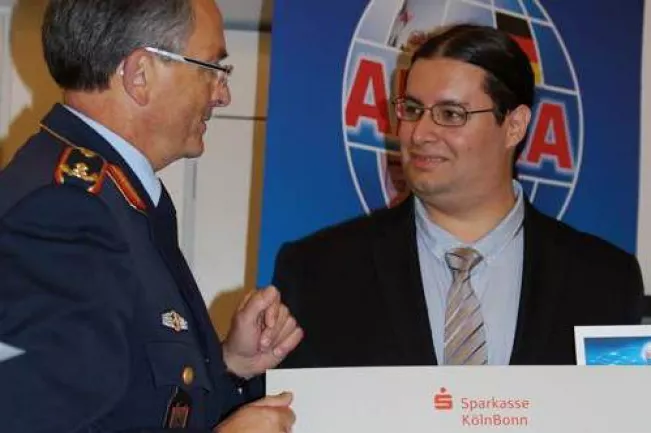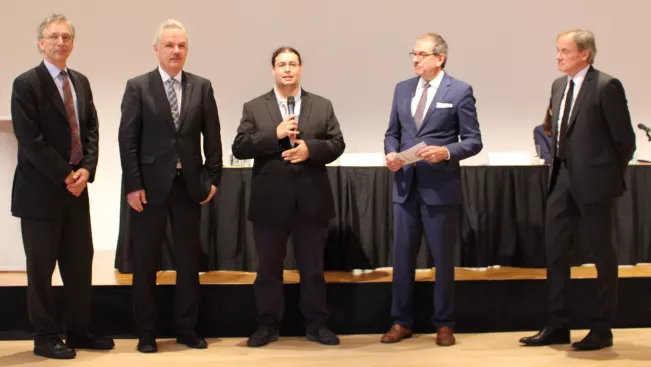Communications and Marketing | Alumni Office

Mathias Valdenegro, Autonomous systems

A childhood dream has come true for Mathias Valdenegro. Inspired by science fiction films such as Star Wars, Transformers and Robocop, the Chilean-born H-BRS graduate was already raving about working with robots as a young boy. Above all, the fact "that robots can do things that humans would never be able to do" was a huge motivation for the 31-year-old. The remote-controlled robots that investigated the radioactively contaminated Fukushima after the reactor disaster, for example, are a milestone in technology for him: "Robots can simply do jobs that are too dangerous for us humans. And that is exactly the area that I want to advance with my research."
Even as a schoolboy, he enjoyed reading research reports and books about the complexity of robots. And so, with his school-leaving certificate in his pocket, he looked for a suitable course of study and finally enrolled on the Master's degree programme "Autonomous Systems" at H-BRS. He found out that the university was technically well-equipped and very international with many collaborations and students from all over the world. So he came to Germany in September 2012. Above all, working with the university's own robots, the so-called "Kuka YouBots" and "Care-O-Bots", familiarised him with the mindset and necessary skills of a robot researcher. "It all took place in a very friendly atmosphere with direct contact to the professors and lecturers." Those responsible at the university were always ready to listen to the students.

After graduating, Valdenegro decided to move to a Scottish partner university of H-BRS for his PhD, where he was involved in an EU project "Robocademy Initial Training Network (ITN)", researching the development and improvement of underwater robots. ( Since then, Valdenegro has moved to Jacobs University in Bremen with his PhD project due to significantly better research conditions). In oceans or lakes, the machines have to fulfil completely different requirements than on land or in the air, for example: "Underwater visibility is often poor and navigation is much more difficult," says Valdenegro. So far, most of the robots he works with can only observe their surroundings. However, the first ones with a movable arm will soon be tested. This will allow them to actively change the environment. "For example, opening and closing underwater valves or picking up interesting objects on the seabed". Robots will then also be able to do underwater jobs that are impossible for humans. As the example of Fukushima, which is located on the coast, shows once again: There, too, underwater robots are entering areas that would be too harmful to humans.
Text: Marius J. Franke
Updates incorporated by mni management in 2017.
Marius J. Franke is studying technical journalism at our university. He wrote this portrait as part of an elective course (portrait writing using the example of H-BRS alumni) in the winter semester 2015/2016.